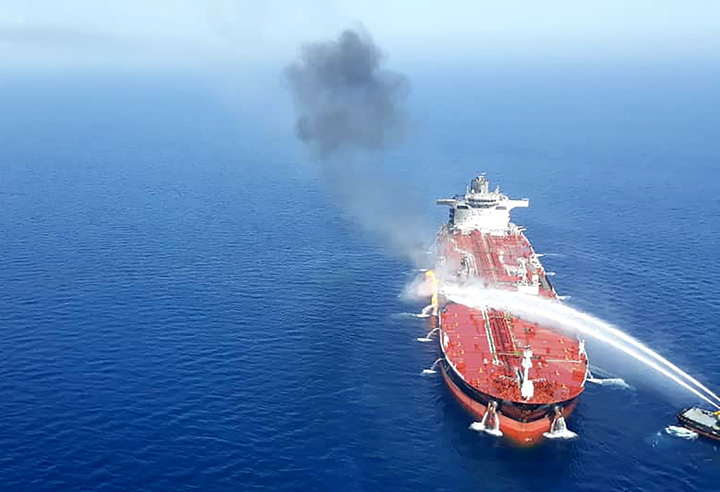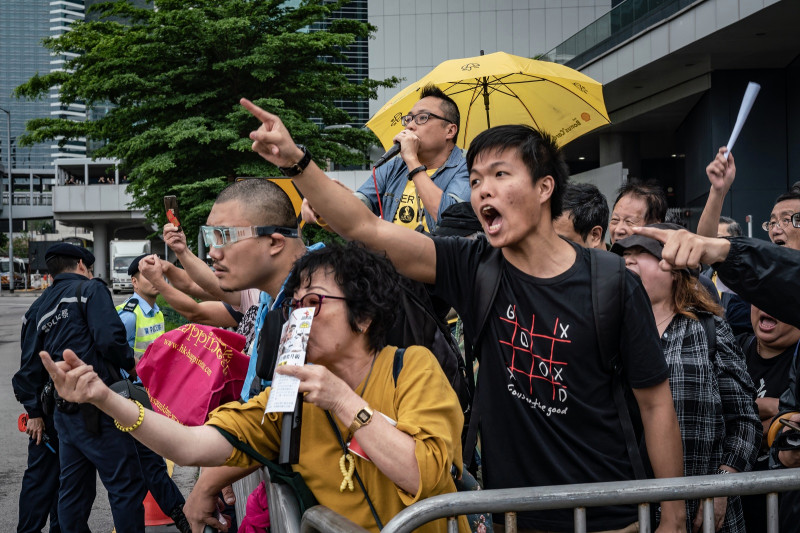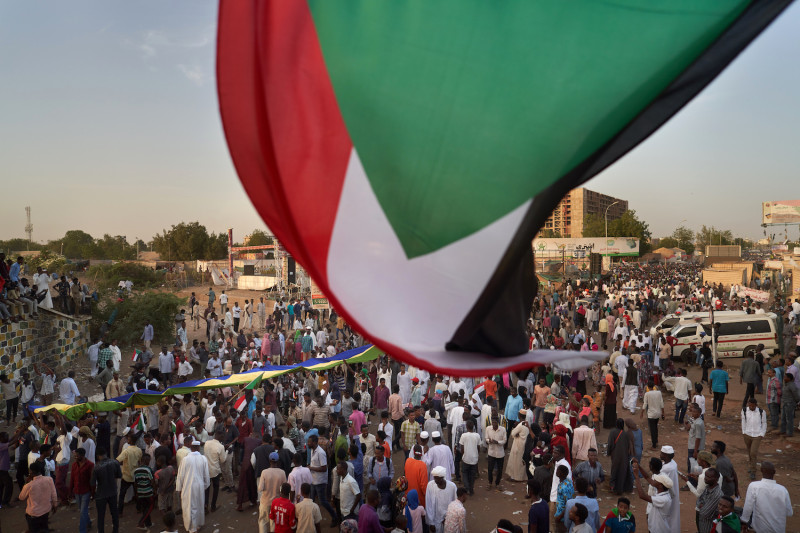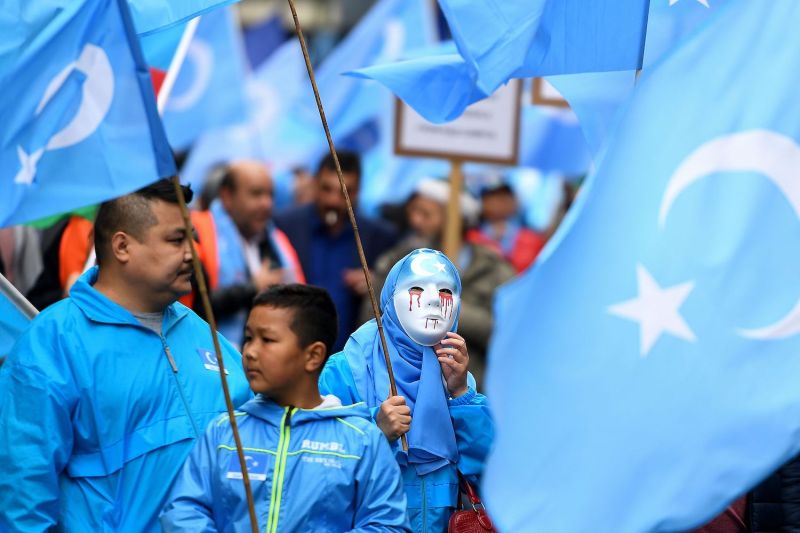This week, the United States blamed Iran for attacks on two oil tankers in the Gulf of Oman—a charge Iran has denied. The attack on the Norwegian-owned and Japanese-owned oil tankers came during Japanese Prime Minister Shinzo Abe’s visit to Tehran, the first such trip since the 1979 revolution.
In Hong Kong, protests escalated over the course of the week, leading to violence Wednesday after police used rubber bullets and tear gas against demonstrators. The protest movement emerged in opposition to a proposed bill that would allow extradition to mainland China.
Meanwhile, talks between the Sudanese military council and the opposition were slated to resume this week, after a security force raid on a protest camp last week brought them to a halt. The United States stepped up its involvement in Sudan this week with the appointment of a special envoy.
Here are Foreign Policy’s top five weekend reads.
U.S. Secretary of State Mike Pompeo speaks from the State Department briefing room in Washington on June 13. Win McNamee/Getty Images
1. Some U.S. Allies Balk at Blaming Iran for Tanker Attack
The Trump administration has doubled down on its accusation that Iran was behind Thursday morning’s tanker attacks, but U.S. allies have been reluctant to follow suit, Foreign Policy’s Robbie Gramer and Lara Seligman report.
Iran’s alleged attack further ratcheted up tensions between Tehran and Washington, but it represents a failure of U.S. President Donald Trump’s “maximum pressure” strategy, Ilan Goldenberg writes.
Protesters hold placards and shout slogans as they take part in a rally against the extradition law outside the Legislative Council building in Hong Kong on May 4.Anthony Kwan/Getty Images
2. How Hong Kong’s Unrest Plays to Beijing’s Hawks
Amid the escalating protests in Hong Kong and subsequent violence, Beijing is already exploiting the protests to its advantage as U.S.-Chinese tensions worsen, Melinda Liu reports.
The United Kingdom owes its former colony a strong show of support, Milia Hau writes.
On the First Person podcast: Frank Langfitt, a former China correspondent, traces Beijing’s gradual effort to erode human rights in Hong Kong.
3. Accused of Inaction, Trump Team Set to Appoint Sudan Advisor
After violence in Sudan surged last week, the Trump administration appointed former diplomat Donald Booth as a special envoy to the country, Foreign Policy’s Robbie Gramer and Justin Lynch report.
U.S. President Donald Trump and Poland’s President Andrzej Duda meet in the Oval Office of the White House in Washington on June 12.MANDEL NGAN/AFP/Getty Images
4. ‘Fort Trump’ for Poland? Not Quite.
Trump announced plans to send 1,000 additional troops to Poland during joint remarks with Polish President Andrzej Duda, a sign the administration is keeping an eye on Russian aggression, Foreign Policy’s Lara Seligman and Robbie Gramer report.
Read the transcript of Duda and Trump’s remarks at the White House on Wednesday.
Ethnic Uighurs take part in a protest march calling on the European Union to do more on China’s crackdown against Uighurs, in Brussels on April 27, 2018. Emmanuel Dunand/AFP/Getty Images
5. Xinjiang Visit by U.N. Counterterrorism Official Provokes Outcry
A planned visit by a top U.N. counterterrorism official to Xinjiang, where China has forced an estimated million Uighurs into detention camps, sparked outcry this week. Critics worry the visit will reinforce Beijing’s depiction of Uighur activists as terrorists, Foreign Policy’s Colum Lynch and Robbie Gramer report.
In Beijing, the Belgian Embassy called the Chinese police on a Uighur family stuck in visa proceedings, Vanessa Frangville and Rune Steenberg write.


















